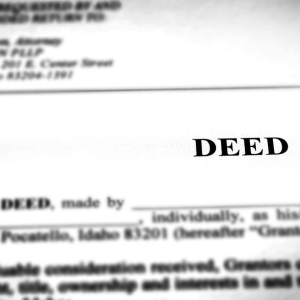![how to fill out quitclaim deed in market_city]](https://image-cdn.carrot.com/uploads/sites/31685/2024/10/how-to-fill-out-quitclaim-deed.png)
Understanding Quit Claim Deeds In Kentucky
A quit claim deed transfers property ownership from one person or entity to another. Understanding the specifics of a quit claim deed is critical for those conducting real estate transactions in Kentucky.
This type of deed does not guarantee or protect the new owner, so it is critical to conduct extensive research and understand the implications before signing. It is also worth noting that quit claim deeds do not guarantee clear title to the property, so there may be unknown liens or claims against it.
When filing a quit claim deed in Kentucky, exercising caution and due diligence is important.
The Process Of Filing A Quit Claim Deed In Kentucky

In Kentucky, filing a quit claim deed is an easy way to transfer property ownership without a traditional sale. To begin, the grantor must fill out and sign a quit claim deed form that contains information about the property and both parties involved.
The form must then be notarized before being filed with the county clerk’s office where the property is located. After filing, the grantee will obtain a copy of the recorded deed as proof of ownership.
Filing a quit claim deed may require additional fees, such as taxes or recording fees. You should also speak with an attorney or real estate professional to ensure that all legal requirements are met during this process.
Steps To Take Before Filing A Quit Claim Deed In Kentucky
Certain steps must be taken to ensure a successful transfer of property ownership in Kentucky before filing a quit claim deed. To begin, both parties in the transaction should carefully review and comprehend the terms of the deed.
If you have any questions or concerns, consult a real estate attorney. The next step is to obtain a certified copy of the current property deed from the county clerk’s office.
This will serve as proof of ownership and help to prevent future disputes. Furthermore, obtaining title insurance can provide extra protection for both parties.
A title search is recommended to identify potential liens or encumbrances on the property. Finally, all necessary forms must be completed and signed by both parties before filing with the county clerk’s office.
To successfully transfer property ownership in Kentucky, follow these steps when filing a quit claim deed.
Legal Requirements For Filing A Quit Claim Deed In Kentucky

Certain legal requirements must be followed to file a quit claim deed in Kentucky. To begin, both the grantor’s (current owner) and the grantee’s (new owner) names and addresses must be included in the deed.
The legal description and address of the property must also be clearly stated. Both parties must sign the deed before a notary public.
In Kentucky, a quit claim deed does not need a witness or acknowledgment. However, at least two witnesses should sign the document to avoid future legal issues.
Finally, after the deed is completed and signed, it must be filed with the county clerk’s office in the county where the property is situated. Failure to comply with these legal requirements could lead to complications or even invalidate the quit claim deed.
Common Mistakes To Avoid When Filing A Quit Claim Deed In Kentucky
Avoid common mistakes when filing a quit claim deed in Kentucky. One of the most important things to remember is that all parties understand the consequences of signing the deed.
This includes the grantor, who transfers ownership, and the grantee, who accepts it. Thorough research is important to avoid potential tax consequences of filing a quit claim deed.
Ensure the transferred property has a clear title and no outstanding liens or encumbrances. Failure to properly record the deed with the county clerk’s office can lead to future complications.
Additionally, it is critical to have an attorney review all documents before filing to ensure they are legally valid and enforceable. To ensure a successful quit claim deed filing in Kentucky, avoid these common mistakes.
How To Prepare And Draft A Quit Claim Deed In Kentucky

Kentucky’s quit claim deed filing process can be tricky, but it can be done successfully with the right information and planning. The first thing to be done is to get all the paperwork. This includes the current deed and other applicable papers, like liens or mortgages.
Research the property’s legal description to ensure its accuracy. Next, write the quit claim deed by clearly listing the parties, describing the property being transferred, and stating the payment for the transfer.
The language used should be clear and specific to avoid future confusion. Both parties must notarize and sign the deed before sending it to the county clerk’s office.
As long as you follow these steps, using a quit claim deed to transfer property in Kentucky will be legal.
Key Terms And Definitions Related To Quit Claim Deeds In Kentucky
In Kentucky, a quit claim deed is a legal document used to change who owns a property. Before you file this type of deed, you should know what some of the most important terms mean.
In Kentucky, the person who owns the property and is giving up their interest in it is called the grantor. The person who is receiving the interest is called the grantee. The “consideration” is the payment that is made in exchange for the property. The payment can be money or something else.
The description should include a full and accurate description of the property’s location and boundaries. For the quit claim deed to be valid in Kentucky, it must also be witnessed and signed by a notary public.
Other important words to know are “conveyance,” which means “to transfer ownership,” and “warranty,” which means any promises the grantor makes about the property. Knowing these important terms and what they mean regarding Kentucky quit claim deeds, you can ensure that your real estate deals are legal and properly executed.
Pros And Cons Of Using A Quit Claim Deed In Kentucky

A quit claim deed can be an effective tool for transferring property ownership in Kentucky. Still, it’s critical to understand the potential benefits and drawbacks before deciding whether it’s the best option for you. One significant advantage of using a quit claim deed is that it allows for a quick and simple property transfer without requiring a lengthy legal process.
This can save time and money compared to other methods of transferring ownership. However, because a quit claim deed does not guarantee clear title or protect against existing liens or claims on the property, both the grantor and grantee face risk.
Before proceeding with a quit claim deed in Kentucky, thoroughly research the property and trust the party receiving or giving ownership to it.
Differences Between A Warranty Deed And A Quit Claim Deed In Kentucky
In Kentucky, homeowners have two options for transferring property ownership: a warranty deed or a quit claim deed. Although both documents serve the same purpose, they differ significantly.
A warranty deed ensures the property is free of liens and claims while providing the buyer with legal protection. In contrast, a quit claim deed simply transfers the seller’s interest in the property without any guarantees.
This means that if the title has any issues, the buyer will not be protected. Furthermore, a warranty deed necessitates a thorough title search and usually involves more paperwork than a quit claim deed.
Finally, Kentucky homeowners must understand the differences and select the appropriate type of deed when filing for real estate transactions.
Considerations For Joint Ownership When Filing A Quit Claim Deed In Kentucky

When filing a quit claim deed in Kentucky, especially if you and someone else own the property together, there are a few important things to keep in mind. One of the most important is the type of joint ownership, such as whether it’s tenancy in common or joint tenancy.
When you file a quit claim deed, you must follow the rules and requirements for each type. It’s also important for everyone involved in joint ownership to be able to talk to each other and understand each other. Any disagreements or misunderstandings can cause problems in the future.
Before you file a quit claim deed, you should also carefully look over and understand any existing liens or mortgages on the property. When buying or selling a home in Kentucky, it’s important to do a lot of research and get good legal advice about joint ownership and filing a quit claim deed.
Can I Prepare My Deed In KY?
If you’re considering filing a quit claim deed in Kentucky, you might wonder if you can prepare the document yourself. The answer is yes, but some critical factors must be considered before proceeding.
First and foremost, you must understand the legal requirements and procedures for filing a quit claim deed in Kentucky. This includes understanding the proper format and language to use and having all necessary parties sign the document.
Furthermore, consulting with a real estate attorney or using a reputable online service can help ensure the deed is properly prepared and filed, avoiding future issues. Taking these precautions allows you to confidently prepare your quit claim deed and successfully transfer ownership of your property in Kentucky.
How Much Does It Cost To File A Deed In Kentucky?

Whether buying or selling real estate in Kentucky, filing a quit claim deed is necessary. However, many people are unaware of the expenses associated with this critical legal document.
The filing fee for a quit claim deed in Kentucky varies by county but usually ranges from $20 to $50. Other fees, such as recording and processing, may be added to the filing fee.
Research your county’s specific fees before filing, as they can significantly impact your budget. Understanding the costs of filing a quit claim deed in Kentucky will ensure a smooth and successful transfer of property ownership.
How Do I Transfer A Deed To A Family Member In Kentucky?
Among the most typical and easy ways for a Kentucky property owner to pass their property on to a relative is with a quit claim deed. With this legal document, you can transfer your interest in the property to another person, but there are no warranties or guarantees.
You should start by drafting a quit claim deed and submitting it to the county clerk’s office where the property is situated. The deed should contain all required details, including the names of the grantor and grantee, a legal description of the property, and any applicable signatures.
Both parties can rest easy knowing that this deed, once recorded, serves as an official record of the transfer of ownership.
Does A Deed Have To Be Recorded To Be Valid In Kentucky?
The question of whether a Kentucky quit claim deed must be recorded is a common one. Yes, recording the deed is necessary for legality.
In Kentucky, a quit claim deed must be recorded in the property’s county to be recognized by the state and enforceable in court. Both parties must follow protocol and file the deed with the county clerk to avoid future issues and disputes.
Thus, recording a quit claim deed may seem like an extra step in a complicated process, but it is essential for Kentucky real estate transactions.
This information applies to Kentucky and its cities, including Ashland, Berea, Glasgow, Hopkinsville, Lexington, and more. For assistance or questions, please call us at (502) 610-0070. You can also visit our website, Kentucky Sell Now, for more details.


